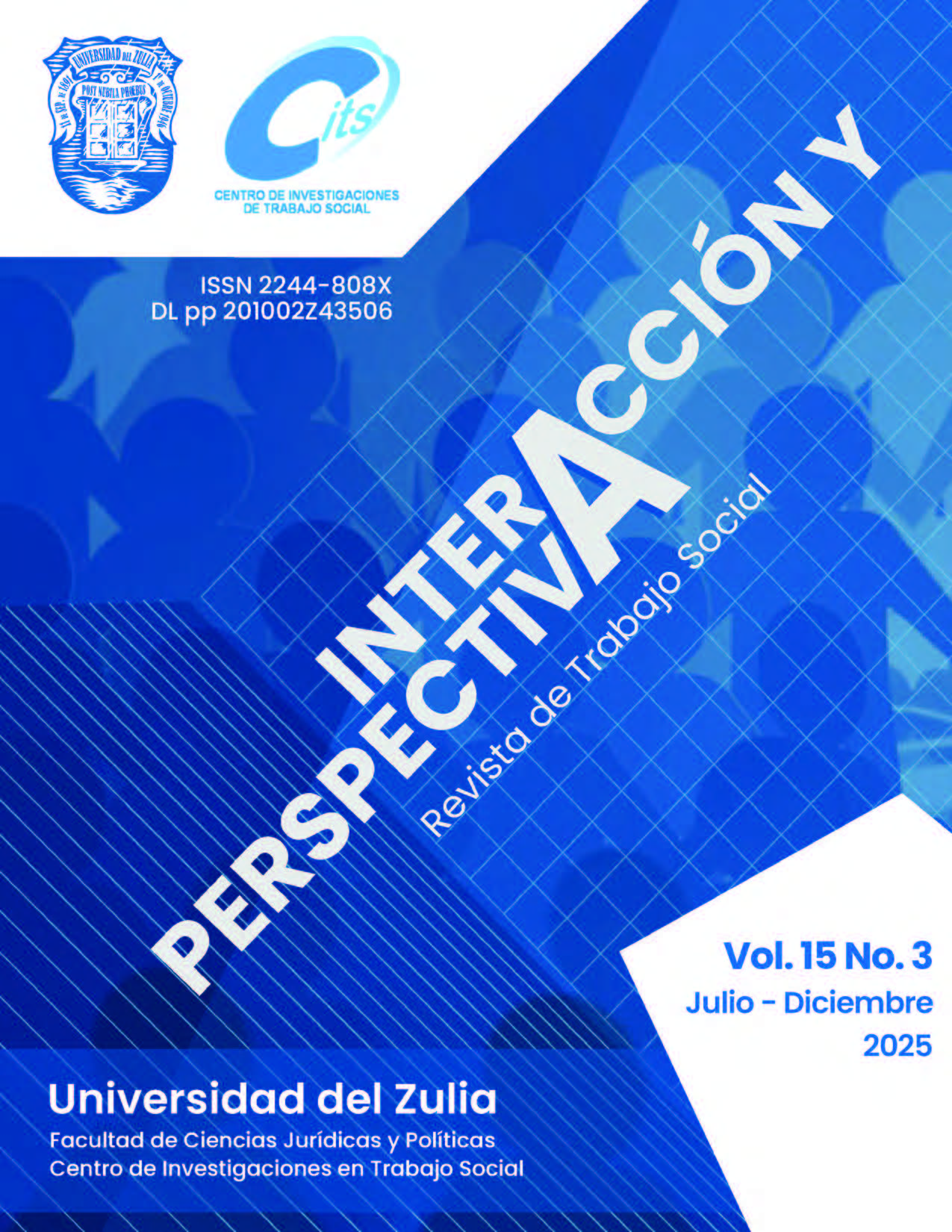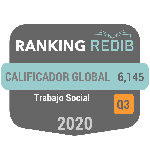Digital technologies and new grammars of knowledge. Epistemological challenges in the digital society
Abstract
Today’s world is characterized in general terms by the continuous digitalization of reality, a phenomenon that allows us to speak of the consolidation of the digital society and implies a set of epistemological challenges that demand study and calm philosophical reflection. From the typical methodology of epistemological analysis and through the documentary selection of sources of proven scientific value, the objective of this research was to problematize and philosophically discuss the epistemological challenges faced by the new grammars of knowledge, in their dialectical relationship with digital technologies. The information processed allows us to conclude that the vertiginous advance of digital society progressively questions the legitimacy of humanistic knowledge such as history and philosophy, questioning their contributions while privileging technological development and the exact sciences, since they are much better adapted to open economies driven by the profit motive, as a guiding principle of social life. This imbalance reflects a deep epistemological tension between different forms of knowledge and their respective criteria of validation and, moreover, between profit and the freedom to be and to know.
Downloads
References
Aryal, S. C. (01 de marzo de 2023). The Impact of a Digital Regime on Academic Knowledge Production. Obtenido de School of Business, Economics, and IT Master’s Program in Work Integrated Political Studies (WIPS): https://www.diva-portal.org/smash/get/diva2:1746631/FULLTEXT01.pdf
Barroso Jerez, C. (2013). Sociedad del Conocimiento y Entorno Digital. Teoría de la Educación. Educación y Cultura en la Sociedad de la Información, 14 (03), 61-86. https://www.redalyc.org/pdf/2010/201029582004.pdf.
Berrara Morales, M. (2010). Modelos epistemologicos en investigacion y educacion. Caracas: Quiron ediciones.
Dancy, J. (1993). Introducción a la epistemologia contemporanea. Madrid: Tecnos.
Doubront, L. (2021). Abordaje epistemológico en la investigación educativa para la aproximación, constructo, modelo o perspectiva teórica. Horizontes. Revista de Investigación en Ciencias de la Educación, 5 (18), 354-372. http://www.scielo.org.bo/pdf/hrce/v5n18/2616-7964-hr-ce-5-18-354.pdf.
Foucault, M. (2002). Las palabras y las cosas Una arqueologia de las ciencias humanas. Buenos Aires : Siglo veintiuno editores Argentina.
Gutiérrez, R. (2013). Una mirada filosófica a la ética de la investigación. Rev bioét, 21 (1), 43-52. https://www.scielo.br/j/bioet/a/NGHXMgC9Ld6pczCXVVKrzbR/?format=pdf.
Ingvarsson, J. (2021). Towards a Digital Epistemology Aesthetics and Modes of Thought in Early Modernity and the Present Age. Gothenburg: Palgrave Macmillan.
Kasinath, G., & Armstrong, L. (2007). Importance of Verification and Validation of Data Sources in Attaining Information Superiority. Edith Cowan University, 127-134. https://doi.org/10.4225/75/57b54ce7b875e.
Klopov, I., Shapurov, O., Voronkova, V., Nikitenko, V., Oleksenko, R., Khavina, I., & Chebakova, Y. (2023). Digital Transformation of Education Based on Artificial Intelligence. TEM Journal, 12 (04), 2625-2634., DOI: 10.18421/TEM124-74.
Leiter, B. (summer de 2024). Free Speech on the Internet: The Crisis of Epistemic Authority. Obtenido de Dædalus: https://www.amacad.org/publication/daedalus/free-speech-internet-crisis-epistemic-authority
Martinez Miguelez, M. (2004). Ciencia y arte en la metodologia cualitativa. Mexico DF.: Editorial Trillas.
Merejo, A. (2015). Epistemología Digital. REALIS, 05 (02), 156-164. https://www.academia.edu/41631515/EPISTEMOLOGÍA_DIGITAL_1.
Morán, A. (2022). La epistemología digital como puente entre la alfabetización digital y el derecho a la información. Investigación Bibliotecológica, 36 (91), 193-206. https://www.scielo.org.mx/pdf/ib/v36n91/2448-8321-ib-36-91-193.pdf.
Nikitenko, V., Voronkova, V., Oleksenko, R., Kovalenko, V., Silina, I., Popova, A., & Sidletskyi, S. (2024). Innovative Modes of Distance Education in the Context of 5G Digital Technologies Implementation. TEM Journal, 13 (02).
Noah Harari, Y. (2014). De animales a dioses Breve historia de la humanidad. Barcelona: Debate.
Nussbaum, M. C. (2016). Educación para el lucro, educación para la libertad. Nomadas, (44), 13-25.
Piccinini, E., Wayne, R., & Kolbe, L. M. (2015). Changes in the Producer-Consumer Relationship-Towards Digital Transformation. Wirtschaftsinformatik Proceeding, 1634-1648. https://aisel.aisnet.org/cgi/viewcontent.cgi?article=1108&context=wi2015.
Popper, K. (1986). La logica de la investigacion cientifica. Madrid: Editorial tecnos.
Ritzer, G. (1993). Teoría sociológica contemporánea. México DF.: Mc Graw Hill.
Russell, B. (2002). Historia de la Filosofía Occidental. Madrid: Espasa.
Science Europe Principles on Open Access to Research Publications. (22 de octuber de 2015). Obtenido de Science Europe Working Group on Open Access: https://scienceeurope.org/media/4kxhtct2/se_poa_pos_statement_web_final_20150617.pdf
Seligman, J. (2013). Dialectical Inquiry – Does It Deliver? A User Based Research Experience.
The Qualitative Report, 18 (78), 1-23. https://files.eric.ed.gov/fulltext/EJ1043532.pdf.
Trusova, N. V., Oleksenko, R. I., Kalchenko, S. V., Yeremenko, D. V., Pasieka, S. R., & Moroz, S. A. (2021). Managing the intellectual potential in the business-network of innovative digital technologies. Studies of Applied Economics, 39 (05), 1-15. Doi: 10.25115/eea.v39i5.4910.
Ursua, N. (2014). «e» Epistemología: un desafío y una respuesta filosófica al mundo digital. Revista Internacional de Filosofía, (61), 55-74. http://dx.doi.org/10.6018/daimon/155871.
Verkhovod, I., Oleksenko, K., Chernenko, O., Semenova, O., & Mazurenko, Y. (2024). La educación a distancia en el sistema de factores de adaptabilidad de la esfera social de Ucrania. Interaccion y Perspectiva, 15 (1), 171-181. https://doi.org/10.5281/zenodo.14031670.
Voronkova, V., Nikitenko, V., Oleksenko, R., Andriukaitiene, R., Kharchenko, J., & Kliuienko, E. (2023). Digital technology evolution of the industrial revolution from 4g to 5g in the context of the challenges of digital globalization. TEM Journal, 12 (2), 732-742. Doi: 10.18421/ TEM122-17.

















